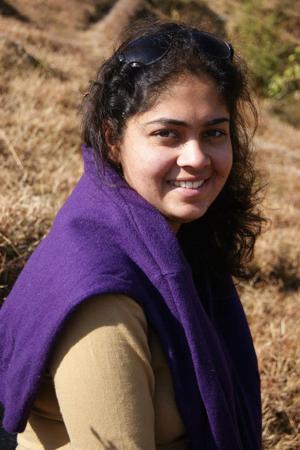
Welcome to All Things Indian. Every Saturday, I unpack the complexities of contemporary India. Each post is a short piece of fiction based on real people I have seen, heard of and met during my reporting. To get it in your inbox every week, sign up here.
The stone bench this January evening, seems a lot colder than last year. Or perhaps a year ago, the heat in the air kept me from noticing the chill. The sun had set three hours ago around 4 ‘o’ clock, our campus heated up around 7.
Those couple of hours on January 5, stretched to span almost an entire year.
The events that unfolded that evening transformed me into a person I never thought I would become; they made me a woman my parents feared I’d turn into if they sent me to study at Jawaharlal Nehru University. But, their fears were trumped by practicality - I was getting to study in a “top class” institution where the fees was affordable even to my father whose four-person establishment catered food in weddings in the city of Bilaspur. Not the fancy-shancy ones costing crores of rupees, but the ones where families empty-out all their savings to ensure a hundreds of people are fed modestly for three successive days.
Every time, Mishra Bhojan Bhandar took catering orders for weddings, my father Surednranath Mishra went to the wedding hall to check if the paneer butter masala had just the right amount of salt and ensured the phirini had a few extra granules of sugar in it. Upon returning home, he never missed describing the bride to me. ‘She had the best red lehenga but I wish they had chosen a heavier necklace to go with the blouse’
I grew up assuming I would be wed in one of those red dresses that are traditional to certain Hindu communities like ours. Even when I arrived in Delhi, my life path was clear. I was to study at JNU, get a postgraduate degree in political science and head home to marry a boy of my parents choice. Of course he would be Brahmin, because we didn’t marry people from “neechi jaat” or lower castes. He might be a lawyer or a doctor or even better, have a stable government job.
When I stepped out to drink chai from Raghu Dhabha near Ganga Hostel last year on January 5, emotions I never knew existed surfaced in me. I became an adult. I became a woman.
Oh sorry, I forgot to ask you if you want chai… no? Shall I continue? Okay.
So, ever since Akhil Bharatiya Vidyarthi Parishad - the student wing of the BJP - gained some foothold in JNU, this university has become a battleground. Informal war rooms cropped up in canteens where earlier, students used to discuss theory and ideology they now discuss ‘strategies to defeat the enemy’. The frontline keeps changing periodically - sometimes it is the library, other times the lawns, evenings it is the dhabas and at night, the hostels. The dogs on campus that one side has adopted is not fed by the other. There is physical violence and hatred in the air. Foot soldiers are all over, fighting small battles in grocery stores over why one should buy 100% Indian-made Patanjali products only. Classrooms are where the ideological warfare is fought without consideration for the other’s viewpoints. No one wins. Spies populate the campus eavesdropping on conversations happening in libraries, dhabas and hostel rooms. They inform the political parties, who in turn figure how to win maximum votes in the next student elections. Women are the worst sufferers, as in any war. We are asked to remain in hostels as much as possible, we should be careful who we hang out with, we should ensure we don’t let a debate turn violent - best still, speak less.
We were sitting in a political theory class the other day when Sanket and Prashant from ABVP stormed in, in their usual arrogant manner, and asked the professor to stop the class. There was a rally they wanted students to participate in, so they wanted many of us to go.
I had seen scenes like this in colleges of Bilaspur. But, JNU was meant to be different. Students were encouraged to be irreverent but not arrogant.

















Write a comment ...